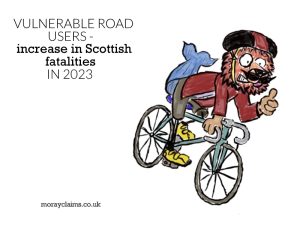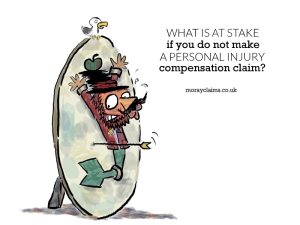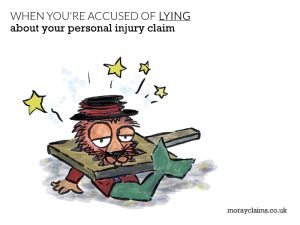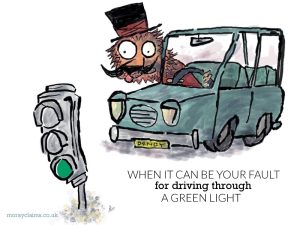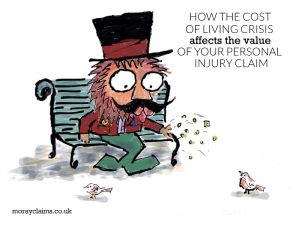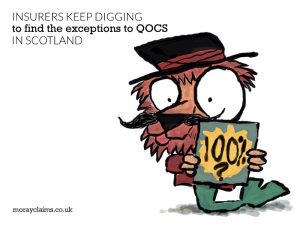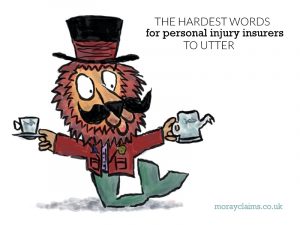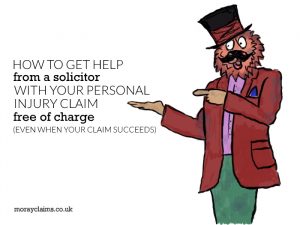Recently-released statistics have shown that as compared with 2022, 2023 saw a reduction in the overall number of deaths on Scotland’s roads. This is good news. However, lurking within these statistics, there was, unfortunately, an increase in deaths within the sub-category for vulnerable road users. Vulnerable road users include motorcyclists, pedal cyclists and pedestrians. The figures for serious injuries within each of these subcategories also showed an increase as between 2022 and 2023. The indications are that, for car users, road safety levels continued to improve. But if you are walking or travelling on two wheels, it is more of a bleak picture. Given that we are all being encouraged to engage in more active forms of travel (e.g. walking and pedal cycling), the signs are that the Government is going to need to do more to reassure the public that proper safety measures are being put in place (e.g. separated-from-carriageway active travel routes such as Continue Reading
What is at stake if you do not make a personal injury compensation claim?
What do you stand to lose if you do not make a claim for personal injury compensation in a situation where that would be a realistic option for you? In this article, we will consider 3 ways you can lose out if you don't make a personal injury claim. The general principles here may be obvious but probably not all of the details will be known to you already. Knowing these things is an important part of your "informed consent" - i.e. having all the relevant points to hand before making your decision: to claim or not to claim. Firstly, we will look at your “loss” due to your failure to give yourself the benefit of monetary compensation. In fact, that loss does not just apply to you; it can apply to others who would have to rely on you making a claim in order for them to be compensated as well. Secondly, we will discuss the fact that you only have the choice to make a personal injury compensation claim for a limited period of time. The right does not last forever. Once the right Continue Reading
When you are accused of lying about your personal injury claim
Traditionally, age brings with it wisdom – and the respect of others. But what if you’re 84 years old and you’re accused of telling lies "in court"? It's one thing to exaggerate, for example, medical symptoms caused by an accident - but to invent them? Here's an anonymised true story of a case we dealt with and how a scenario of that nature played out in practice. Our client was injured after she fell into an excavation that had been made by a national utilities company. It was right outside her garden gate. There were no warning signs in place. Our client had a registered sight impairment. She opened her gate, minding her own business, took one step and suddenly down she went. After her accident, the utilities company covered the trench with hard plastic matting so it was impossible for pedestrians to fall in. If they had done that before the accident, it could not have happened. We alleged that the utilities company had been negligent and that had caused our Continue Reading
When it can be your fault for driving through a green light
You’re in a rush. It’s a dark, wet Monday morning in January. You want to cross the main road on foot at traffic lights, using the pedestrian crossing there; but the lights are green for vehicles - and red for you to cross. On the approach to the traffic lights for vehicles, there are two bus stops. It’s a predominantly residential area. You decide you have to risk crossing on red. Dashing onto the crossing, you suddenly realise an approaching car is bearing down on you. It’s about 5m away and travelling close to the speed limit of 30mph. Your brain freezes with panic. You've misjudged the speed of the oncoming vehicle. You’re rooted to the spot. Paralysed with fear. It's too late to get out of the way. Though the car driver instinctively swerves to avoid you, having only noticed you late, the collision is inevitable. The impact throws you up onto the bonnet. Your head hits the nearside windscreen, causing a “bullseye” break in the glass - i.e. a spider’s web-like Continue Reading
How the Cost of Living Crisis affects the Value of Your Personal Injury Claim
In July 1971, a sliced white loaf of bread would have cost you 10 pence. In July 2021 the cost would have been £1.06. The Retail Price Index ("RPI") shows an average cost for the same loaf of bread as £1.36 in July 2023. The rise in prices over time is known as inflation. It can also be described as the decline of purchasing power over time. In the present Cost of Living Crisis, the upward trend in prices is affecting most things and that includes personal injury compensation (compensation also sometimes referred to as “damages”). The injury part - for the "pain and suffering" associated with the injuries - of a personal injury compensation claim is just one element of the value of the claim as a whole. Other elements can include wage loss and necessary travel expenses. In this article, we are only discussing the injury part of personal injury claims. This can be variously described as "pain and suffering", General Damages and solatium. Continue Reading
A cautionary tale about dangers from weedkiller in Moray
Usually, a headline like that warns you about possible dangers from your own carelessness. It’s much worse than that here, unfortunately. This article contains a warning about how you – and especially your pets – might be at risk from lack of care on the part of your own local authority. The practices of Moray’s local authority in relation to weed killing mean pet owners must be extra vigilant. Rinaldo Coluccia’s 8-year-old German Shepherd dog, Honey, died as a result of ingesting Glyphosate (a herbicide) beside “The Walkies” path (by the A96) in Forres. The Council had treated the area in order to destroy Giant Hogweed plants. The Council’s risk assessment provided that warnings should be given to the public where areas had recently been sprayed. “Control measures” within the risk assessment included: “Keep pets on lead when passing area (sic) which have had herbicide application recently.“, and “Prevent pets from eating/chewing vegetation applied with Continue Reading
How Does Your Personal Injury Solicitor Make Money If They Do Not Charge You Anything?
One of my favourite rock bands is the Canadian trio, Rush. I have seen them live in concert 5 times between 1981 and 2013. They were inducted into the Rock ‘n’ Roll Hall of Fame in 2013, having released their first album as long ago as 1974. By 1976, Rush were about to release their fourth album. Their previous LPs had been relative commercial failures. And so their record label encouraged them to ditch the ‘concept album’ format – with whole sides devoted to a single theme or story – which they had followed for albums 2 and 3. In fact, they stuck to their philosophy. Side 1 has the 7-part suite of the album’s title, set in a musically intolerant world, now less than 100 years in the future. 2112 (“Twenty-one Twelve”) went on to become arguably their most famous record; it was certainly their breakthrough. The final track on Side 2 is called ‘Something for Nothing’ and has the chorus: You don't get something for nothing You don't get freedom for free You won't get Continue Reading
Sheriff rules that an adult egg-and-spoon race is not a race
“Race - a competition in which all the competitors try to be the fastest and to finish first.” The Cambridge Dictionary The Pursuer was unsuccessful in this Elgin Sheriff Court case arising out of injuries sustained in the course of a parents’ race at a children’s sports day. The Pursuer attended her daughter’s annual nursery sports day. One of the events was an egg-and-spoon race for the mothers. The sports day had had to be moved indoors to a sports hall due to inclement weather. Whilst participating in the egg and spoon race, in the “outside lane”, the Pursuer failed to stop in time after the finish line so as to avoid colliding with the wall beyond. She sustained significant and life-changing injuries to both wrists as a result. While most parents taking part did not seem bothered by the outcome, at least one other participant appeared to treat it as a race, stopping only beyond the finish line. The Pursuer took first place. The Pursuer’s higher momentum Continue Reading
Digging for QOCS Exceptions in Scottish Personal Injury Claims
The default position under Qualified One-way Costs Shifting (QOCS) for personal injury compensation claimants in Scotland is this. If your claim succeeds, you will be able to recover legal costs from your opponent, in addition to the compensation agreed as payable or as awarded to you by a court. Whether you lose any of your compensation to pay a success fee will depend upon the arrangement you have with your solicitor. If your claim is unsuccessful, QOCS should mean that you DO NOT have pay legal costs to your opponent - even though the normal rule is “loser pays”. That is what “one-way costs shifting” means. There’s a shift in the usual costs rule in favour of the loser if they are claimant; but not if they are the claimant’s opponents (usually an insurance company). QOCS arrived in England and Wales (2013) before it came to Scotland (2021). To some extent, Scotland has been learning from the experience south of the Border. In 2023, there have been some Continue Reading
Why these are the 3 hardest words for personal injury insurers to utter
If you like words and plays on words, the internet is a mine of nuggets. For example, in India, “Sari” always seems to be the hardest word. If you’re looking for “alternative” definitions of words, the Uxbridge English Dictionary (from BBC Radio 4’s I’m Sorry I Haven’t A Clue) has examples such as: Words are not always what they seem. The “plain meaning” of a word is rarely a given. The meaning of words can be twisted or ignored. In this article, we’ll consider 3 words / phrases which insurers in personal injury claim situations will avoid using if they can and will twist as far as possible if they cannot be avoided. What are these "unforgivable" words / phrases? We’ll get to them in a moment. First, we need to understand the context in which the problematic terminology arises. Your personal injury solicitor wants to achieve for you the highest level of compensation reasonably possible, as soon as reasonably possible. There are various tactics your solicitor Continue Reading
Free of charge help with your personal injury claim from a solicitor (even if your claim succeeds)?
It’s natural to be suspicious if someone seems to be offering you something valuable in return for nothing. We are all conditioned to think that if something sounds “too good to be true”, then it must in fact be too good to be true. There are times when we’re vulnerable to letting our guard down – for example, if it’s something we really want – and system tools have evolved to provide some protection. For example, many spam filters will catch emails with “free” in the subject line because use of that one word alone indicates dodgy intentions on the part of the sender. But just because a service is offered as 'provided free of charge' to you, it's not necessarily dodgy as long as the service provider is getting by some other method - such as happens with solicitors working for claimants with personal injury claims. We invite people to ask us questions via our Google Business page. You can ask a question of Moray Claims on Google Business here. You can see the questions Continue Reading
Claims for Death of a Relative in Scotland – Another milestone?
Elgin's Dandy Lion has not had a view up the High Street to Dr Gray's Hospital since May 2018. In the meantime, his view has been blocked by wooden hoardings as Poundland first had structural problems and then a fire. We’ve had piles of metal on the site, from the “scaffolding mountain” to the beginnings of the new Poundland construction. In the various photos below, there is a similarity but there's also gradual progress. In the law relating to bereavement compensation in Scotland, there can be a superficial sameness to things but, again, under the surface, there is progress and milestones are being achieved. We’ll look at one of these progression points in this article. For fatal accident claims, in Scotland, this is one area where the law is quite different to that in England and Wales. This is particularly the case for compensation awarded for the grief and sorrow caused by deceased’s death – often referred to as compensation for “loss of society”. Those pushing Continue Reading
